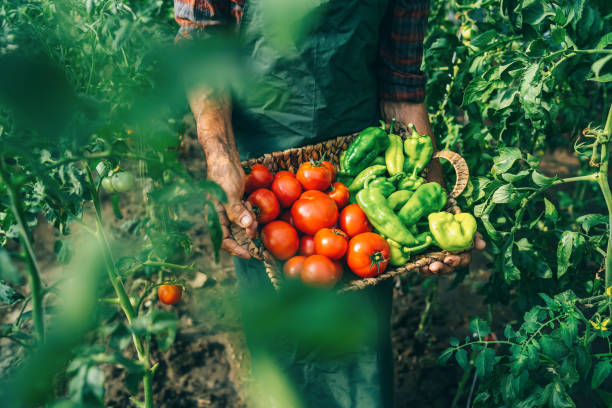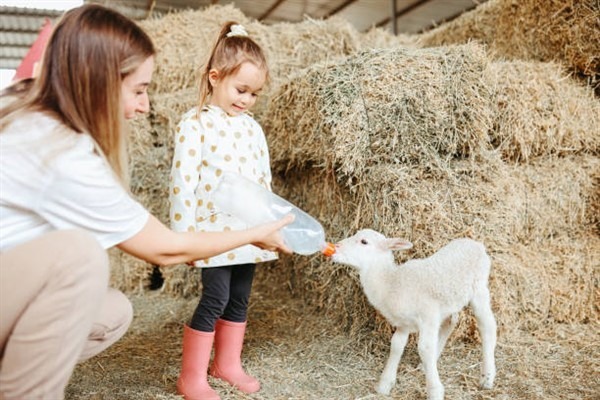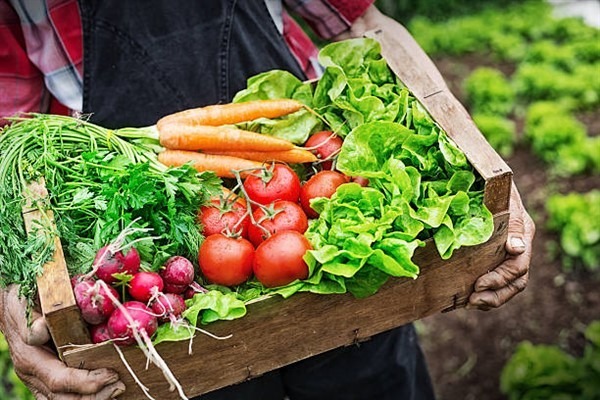Introduction
Unraveling the Charm of Agritourism
Welcome to the fascinating world of agritourism, where arable land meets eager visitors, offering a delightful blend of agriculture and food tourism. In this guide, we’ll explain what agritourism is, exploring its essence, various experiences, and why it has become a popular food tour experience for people of all ages.
The Essence of Agritourism
A Connection with Agriculture
At its core, agritourism is about bridging the gap between urban dwellers and the rural landscapes that sustain us. It’s a chance to experience the heartbeat of agriculture, to touch, smell, and truly understand where our food comes from. This direct connection transforms a simple farm visit into a meaningful and educational adventure.
Types of Agritourism Experiences
1. Farm Visits: Getting Hands-On
Exploring the Variety: Agritourism opens the doors to a myriad of farms. From bustling dairy farms to serene vineyards, there’s a farm experience for every taste.
Hands-On Activities: Visitors, young and old, can immerse themselves in hands-on activities – milking cows, picking apples, or simply enjoying the tranquillity of rural life.
2. Pick-Your-Own Experiences: Harvesting Memories
Direct Engagement: Picking your fruits, vegetables, or even flowers is a cherished agritourism activity. It’s an opportunity to understand the effort behind harvesting and to appreciate the freshness of just-picked produce.
Benefits of Engagement: Besides the joy of choosing your harvest, it’s a sustainable practice that reduces food miles and promotes a connection with the seasons.

3. Agricultural Festivals: A Celebration of Harvest
Festive Atmosphere: Agritourism extends beyond the farm gates, with agricultural festivals celebrating the bounty of the harvest. These events fuse entertainment, education, and community spirit into a memorable experience.
Diversity of Festivals: From pumpkin festivals in the autumn to wine and cheese celebrations, these festivals showcase the rich tapestry of agricultural traditions worldwide.
Learning Opportunities
1. Educational Workshops: Farming Insights
Workshops Galore: Agritourism isn’t just about sightseeing but learning. Educational workshops cover a spectrum – from understanding sustainable farming practices to getting hands dirty in soil conservation efforts.
Promoting Agricultural Education: These workshops play a crucial role in fostering awareness about agriculture’s importance in our daily lives.
2. Farm-to-Table Experiences: Tasting the Journey
The Culinary Connection: Agritourism and gastronomy unite in farm-to-table experiences. These showcase the journey from the farm to our plates, emphasising the importance of locally sourced produce.
Savouring Local Flavors: It’s not just a meal; it’s a celebration of regional cuisines, with fresh, seasonal ingredients taking centre stage.
Family-Friendly Agritourism
1. Petting Zoos and Animal Interactions: Furry Friends Await
Animal Encounters: For families, agritourism often means introducing children to the wonders of farm animals. Petting zoos provide a safe and enjoyable space for children to interact with furry and feathered friends.
Safety and Ethics: Ensuring that animal interactions are safe and ethical is a top priority, allowing families to enjoy a memorable and educational experience.

2. Children-Friendly Activities: Cultivating Curiosity
Activities for All Ages: Agritourism caters to the curiosity of children with engaging activities. From hayrides to corn mazes, these experiences are designed to captivate young minds.
Educational Entertainment: Children not only have fun but also learn valuable lessons about nature, agriculture, and sustainability.
Culinary Adventures
1. Tasting Tours: A Gastronomic Journey
A Feast for the Senses: Tasting tours are the epitome of agritourism’s culinary side. Whether sampling cheeses on a dairy farm or sipping wines in a vineyard, these tours offer a sensory feast.
The Fusion of Agriculture and Gastronomy: It’s not just about tasting; it’s about understanding the intricate relationship between agriculture and the culinary arts.
2. Cooking Classes: From Farm to Fork
Hands-On Cooking: Cooking classes with farm-fresh ingredients provide a unique experience, allowing participants to connect with the produce before it reaches the plate.
Local Cuisines Take Center Stage: The classes often highlight local cuisines, bringing forth the authenticity and diversity of regional dishes.
Sustainable Agritourism
1. Environmental Considerations: Nurturing Nature
Preserving Ecosystems: While agritourism provides a close encounter with nature, it’s crucial to maintain a delicate balance. Responsible practices ensure that these visits contribute positively to the environment.
Best Practices: From waste management to water conservation, farms practising sustainable agritourism set an example for environmentally conscious tourism.
2. Community Engagement: Supporting Local
Positive Impact: Agritourism can be a boon for local communities. By engaging with local businesses, farms, and artisans, visitors contribute to the economic development of the region.
Mutually Beneficial Relationships: It’s a two-way street – as visitors learn about rural life, locals benefit from increased tourism and appreciation for their way of life.
Agritourism for All Ages
1. Tailoring Experiences: Inclusive Adventures
Diverse Interests: Agritourism isn’t limited by age; it caters to a wide range of interests. Whether you’re a family with young children, a group of friends, or a solo traveller, there’s an agritourism adventure for you.
Creating Inclusive Experiences: Farms and agritourism centres strive to create experiences that resonate with visitors of all ages, ensuring that everyone can partake in the joy of rural exploration.
Planning an Agritourism Trip
1. Tips for Visitors: A Successful Adventure Awaits
Preparation is Key: Planning an agritourism trip requires some preparation. From knowing what to wear on the farm to understanding the seasonal activities, a bit of groundwork ensures a smooth experience.
Maximising the Experience: Tips for visitors include everything from knowing the best times to visit for specific activities to being open to trying new things.
Conclusion
Embracing the Multifaceted World of Agritourism
As we conclude our journey through agritourism, it’s clear that this form of food tourism is more than a trend – it’s a celebration of our connection to the land. Agritourism offers not just a vacation but an immersion into the heart of agriculture, providing lasting memories and a profound appreciation for the people who feed the world.














